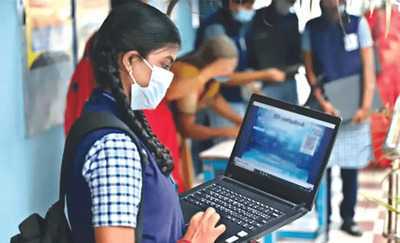A suicide car bomb exploded at around 12:30 pm outside the high-security District and Sessions Court in Islamabad’s G-11 sector, killing at least 12 people – mostly lawyers and court staff – and injuring more than 20. At least 12 people – mostly lawyers and court staff – were killed in the brazen attack on the capital’s judicial centre. The explosion spread flames and debris across the crowded entrance, burning vehicles and causing chaos as litigants fled the complex. Rescue teams rushed the victims to the Pakistan Institute of Medical Sciences (PIMS) hospital, where officials confirmed the death toll amid a hasty evacuation.
Witnesses said a deafening roar was heard during the afternoon rush: “I parked my car and entered the compound when I heard a loud bang at the gate,” lawyer Rustam Malik told AFP. Social media showed thick smoke billowing from a mangled vehicle behind a security barrier, with bloodied survivors visible among the twisted metal. An Islamabad police spokesman confirmed human remains at the scene and pointed to a suicide bomber, while Defense Minister Khawaja Asif and President Asif Ali Zardari called it a “cowardly terrorist act.” No group has claimed responsibility, but a cloud of suspicion hangs over factions of the Tehreek-e-Taliban Pakistan (TTP) amid failed Afghan talks on cross-border terrorism.
The high-security site, located near government offices, was immediately cordoned off by police, NSG commandos and forensic teams to examine CCTV cameras and look for clues. Home Minister Mohsin Naqvi visited and said: “Criminals will face justice; no stone will be left unturned.” Sindh Home Minister Ziaul Hasan Lanjar also expressed condolences and condemned the “precious loss of lives”. As the investigation deepened, initial speculations about a gas cylinder were dismissed, with the parked car being found to contain explosives.
The horrific incident came a day after Pakistan Army foiled a TTP attack on a cadet college in the volatile border town of Wana in South Waziristan—an example of a similar attack on APS Peshawar. On the night of 10 November, a suicide bomber and five terrorists drove an explosives-laden vehicle into the college with the intention of taking the cadets hostage. Troops immediately killed two of the attackers, surrounded three within a block, and neutralized the threat with minimal casualties—six were wounded, with no students reported harmed. The ISPR blamed “Indian representative Fitnah al Khawarij” (TTP pseudonym) who was directing communications into Afghanistan—which contradicts the Taliban’s denial of safe havens. “Pakistan reserves the right to retaliate against Afghan-based terrorism,” it warned, amid a surge in militancy in 2025.
The attack in Islamabad, which was reminiscent of Delhi’s Red Fort massacre (13 people died), further heightened regional concerns. Wana is a TTP stronghold near Afghanistan, so experts fear a coordinated escalation. While clean-up operations continue and cities remain on alert, Pakistan grapples with the shadow of unrest – resilience has been tested, resolve is steadfast.




